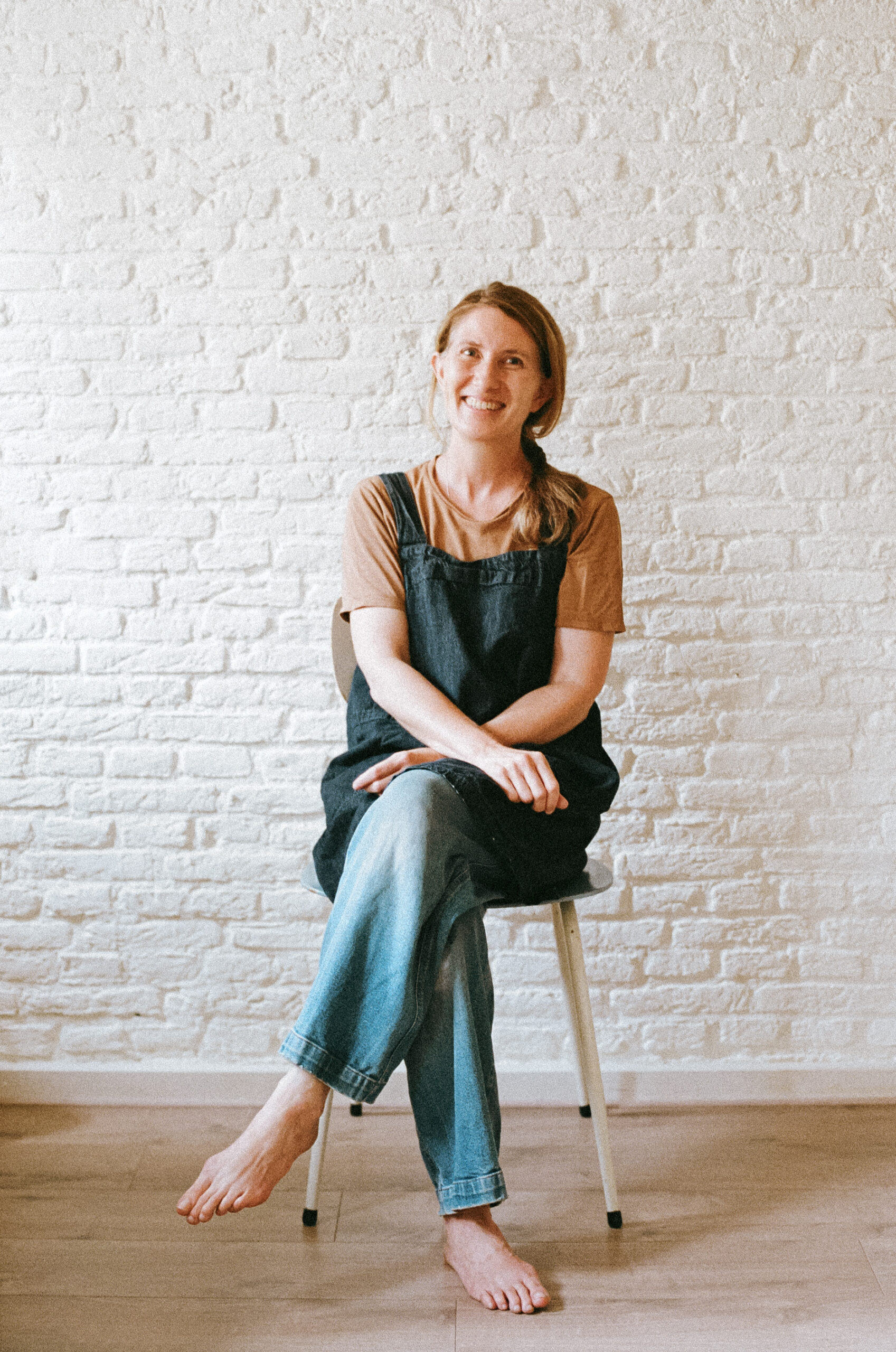A Montessori approach to letting go and separation anxiety

Letting go and separation anxiety are sometimes harder for the parents than the children.
I have a confession. You can ask my parents. When my son was born, I didn’t want him to cry, I was super protective, I didn’t want to leave him with anyone else, and I thought I was the best person to do everything for him.
Letting go and separating from our children is hard. If they cry when we tell them we are leaving them with our partner, grandparent, caregiver or friend, are they telling us we are meant to stay?
Separating and separation anxiety are part of life with children.
In Montessori, we see the child at each stage of their development working on them becoming independent and separating from us:
- in the first plane of development (0 to 6 years) – biological independence
- in the second plane of development (6 to 12 years) – mental independence
- in the third plane of development (12 to 18 years) – social independence
- in the fourth plane of development (18 to 24 years) – spiritual and moral independence
There is a period of separation anxiety usually expressed between 8 and 16 months where our child is learning object permanence, ie, when something goes away, it comes back. We even practice this with a ball dropping through a hole and, for us, going to the bathroom or putting on the kettle and coming back.
The importance of attachment cannot be underestimated. Without a strong connection and trust established, it is difficult for both us and the child to let go.
To me it’s about giving our child both roots and wings.
With a strong foundation, they know we will be there to support them as much as necessary (roots) and as little as possible (wings).
From this place of attachment:
1. Letting go means having other people in their lives
When I thought I was the only one who could look after our baby, I spread myself way too thin. Even with a supportive partner, I was the one mostly feeding, bathing, settling, and rocking the baby as well as cooking, washing and all the other things. I was filling up my cup and my worth from my child. If he was sad, I felt like a terrible mother.
I was turning 26 when he was born and 27 when my daughter arrived, and I like to think that we grew up alongside each other. I found the Montessori approach so much more relaxing. Instead of trying to make my children happy, I became their guide. I hope by trying and failing and pivoting and adjusting and trusting myself more, I am a model of a growth mindset for them.
And I learned that it’s actually a very boring world for them if I’m the only one (with their father) who would care for them. Even if we have some different approaches to their grandparents or others, there is much they can learn from them. Likewise, as they grew up, we found a Montessori pre-school we loved where we trusted they would learn so much; a Montessori primary school that would allow them to learn far more than I was capable of teaching them; sport clubs where they learned skills I certainly don’t have to teach; friends’ homes where they have eaten many meals as if they were a member of their family, learning to trust in others as much as their own family; and then onto high school and cycling around Amsterdam able to explore their social independence.
Letting go means selecting people we trust to care for our children. They learn to have trust in others, and themselves.
2. Letting go is letting them climb a little higher
By letting them take some risks for themselves to climb higher they start to listen to their own bodies and make judgments themselves of how capable they are.
We stand ready if they need us, but allow them to explore their limits.
We are not putting them into positions like walking before they are ready, nor are we limiting them by over-protecting them.
3. Letting go is supervising, not abandoning
Sometimes Montessori is mistaken for giving children free reign of the house without supervision. We do give them a lot of independence, choice when possible, and access to the things they need.
But, to be honest, expect it to be a full time job to keep supervising them. With so much access to the house, with such capable children who have learned how to use glasses, scissors and the like, they require us to be available to guide them. When my children were young, I had a bath in the evening when they were asleep rather than thinking I could leave them for 15 minutes to have a shower.
They are independent. But they are not grown up.
4. Letting go is always age appropriate
We can help our children to scaffold skills so that over time they become more independent. As a toddler, we can help them with dressing, allowing them to take over more and more steps. Allow them to venture further away from us in the park.
In Amsterdam, when they start high school at 12 years old, they will cycle by themselves to school. So we build up slowly, first riding in a park, then side by side on the streets, then behind them, and then maybe 5 minutes behind them in their last year of primary school to practise for the following year.
Now that my son is living out of home at university, I’m happy he learned the skills over time to look after himself – his finances, taking turns cooking (and washing up) with his flatmates, and doing his own washing.
Letting go means building skills in our child.
5. Letting go means being able to say ‘goodbye’ confidently
Children pick up a lot from us as parents. If we feel comfortable in a situation, then they will learn to trust our judgement.
We can say, “I’ll see you at singing time. Have fun!” rather than a long farewell. We give them confidence in the people they are being left with. They may cry to say “you are leaving.” But they will learn that others care for them too. And that their parents always come back.
If we fearfully sneak to the toilet or out of the house without telling them, they may also be scared as they search for us and cannot find us.
Letting go means communicating with our child what is going to happen.
6. Letting go means constantly discovering who our child is, not who we think they should be
Montessori teachers love observing children in a scientific way to discover every day with fresh eyes who this child is.
As a parent, we can get so involved with our child, or with our agenda for our child, or thinking we know our child so well, that we overlook who our child is. Parenthood is truly the highest honour. Your children choose you to guide them and support them to become the most beautiful unique butterfly they are meant to be, not what we make them.
Letting go means seeing them for who they are, right now, in every moment. Not controlling it. Letting them be on their own journey as their guide.
7. Letting go means letting them make mistakes and learning from them
It could be as small as letting the ball fall from the table and allowing them time to pick it up themselves; to falling off a climbing frame; to a school-aged child who forgets their lunch and – rather than rescuing them – letting them work something out at school, sharing some of their friend’s lunch perhaps.
It’s hard to see our child suffer.
But as Montessori parents we want them to learn to be self-reliant, to work out how to solve problems, and to take responsibility if they do something wrong. To get it wrong, and learn from their mistakes.
Letting go means not trying to fix things for them, but providing some guidance and support in hard moments.
8. Letting go is not looking to our child to fill up our cup
If we lose ourselves in parenthood, once we really need to let go and let our child grow into their next stage of development (to preschool, school, high school or out of home), we may find that we are left with nothing.
I truly believe that we are better parents when we fill our own cup – not from our child, or our partner, or our work, or approval from others. We are full cups, happy in our own right, ready to support and be the guide our child is looking for.
Letting go is standing on our own two feet, so that our child can have wings.
And so to end on a personal note, this discussion about letting go seems very apt as my son turned 18 last week. So I’m certainly feeling all kinds of nostalgic. I was expecting to feel sad, but actually I was surprised to feel so excited for what is next for him.
Enjoy every moment. Then it feels neither too fast nor too slow. Breathe it all in.
Happiest 18th birthday Oliver! I love you to the moon and back. Love, Mum X

Simone Davies has more than 20 years’ experience as an AMI Montessori educator. Simone is the author of “The Montessori Toddler” and co-author of “The Montessori Baby” and “The Montessori Child” books, comprehensive guides to raising children in a Montessori way. She currently runs parent-child Montessori classes in Amsterdam at her school Jacaranda Tree Montessori. She also has a popular blog, instagram and podcast “The Montessori Notebook” and is mother to two young adults.